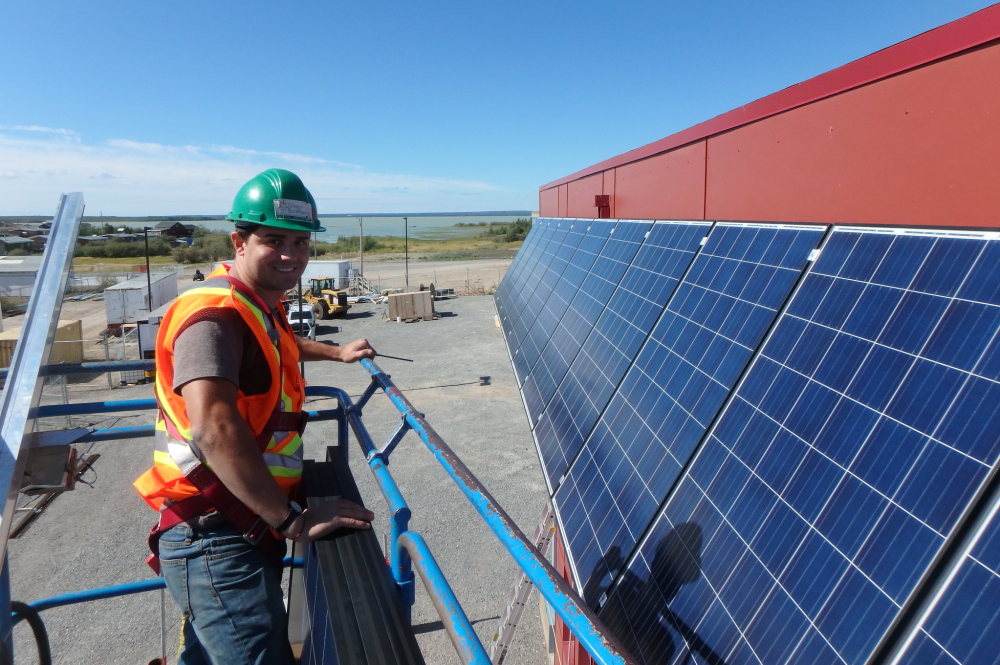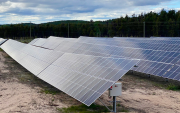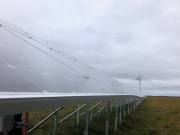A growing number of remote, Indigenous communities are leading the development of renewable energy projects as they transition away from diesel dependency. Between 2015 and 2020, the number of renewable energy projects in remote communities across Canada nearly doubled (see Diesel Reduction Progress Report). Yet, despite this growth in renewables, as much as 79 per cent of the electricity used in remote communities is still generated using diesel fuel.
To fully transition to clean energy, considerably more Indigenous-led and -owned renewable energy projects must be developed. This will require a pricing structure and policy framework that accounts for the environmental, social, and cultural benefits that Indigenous-controlled energy projects bring. Currently, utility rates do not incorporate the value of clean energy in lowering emissions and limiting environmental degradation. Private investors, in turn, need clarity on how to direct funds toward projects that support reconciliation, Indigenous rights to self-determination, and energy independence in addition to the environmental benefits.
When establishing a pricing structure, energy rates should also account for cost savings that are only achieved by replacing diesel with renewables. No longer needing to clean up diesel spills would be one instance of significant cost savings as would the elimination of subsequent remediation efforts. Unlike the current pricing system, the benefits and savings generated by producing renewable energy should be understood as economic opportunities which can improve the business case for investing in and operating clean energy projects (see What’s a fair and equitable price for renewable energy in remote communities?).
Fair and equitable energy prices
The Pembina Institute is launching the FAIR (Fair and Inclusive Rates) initiative, an effort to secure fair and equitable energy prices by raising awareness, conducting research, initiating collaboration, and advancing advocacy efforts so that Indigenous-led and -operated renewable energy projects are appropriately financed by utilities and private investors.
This initiative addresses policies and regulations that lock in low energy rates that jeopardize the sustainability of renewable energy projects and weaken the business case for investment. This is a missed opportunity to realize the many benefits as well as savings that can be realized through clean energy. The initiative will also include efforts to mobilize private capital to invest in Indigenous projects by shifting the pricing structure so that a strong business case can be made, offering a reliable and healthy revenue stream in addition to the social and environmental impacts of clean energy and upholding Indigenous rights.
The social impact of fair energy prices
Promoting energy independence is essential to achieving Indigenous self-determination and autonomy in remote communities. Canada and B.C. have both enshrined the United Nations Declaration on the Rights of Indigenous Peoples (UNDRIP) into law – an important first step in what will be a long journey in ensuring that provincial and federal legislation is consistent with the UN Declaration. Other provincial and territorial governments should likewise legislate their commitment to UNDRIP and facilitate reconciliation through policy and regulatory changes that will allow for a fair pricing system for Indigenous-led energy projects.
Unless pricing structures take into account the full value of renewable energy projects, many remote communities will continue to rely fully on government funding programs. Establishing stable revenue streams that factor in project benefits is reconciliation in action. Incorporating equity into energy pricing means that Indigenous communities have agency over decisions that directly impact the quality of their daily lives.
The benefits of energy sovereignty in remote communities
Launching the FAIR initiative is the first step in a multi-year effort to listen and learn from Indigenous communities leading the renewable energy transition. The initiative will also provide opportunities to leverage what has been learned and build a library of research, case studies, success stories, and lessons learned. The key ask is focused on pushing for policy and regulatory changes to support fair and equitable energy prices.
We invite you to join in this effort to remove systemic barriers that can unlock significant economic opportunities for remote communities. We will continue to keep you informed on the latest developments in the FAIR initiative as we grow our network, establish more partnerships, and advance opportunities for an Indigenous-led clean energy future.











